
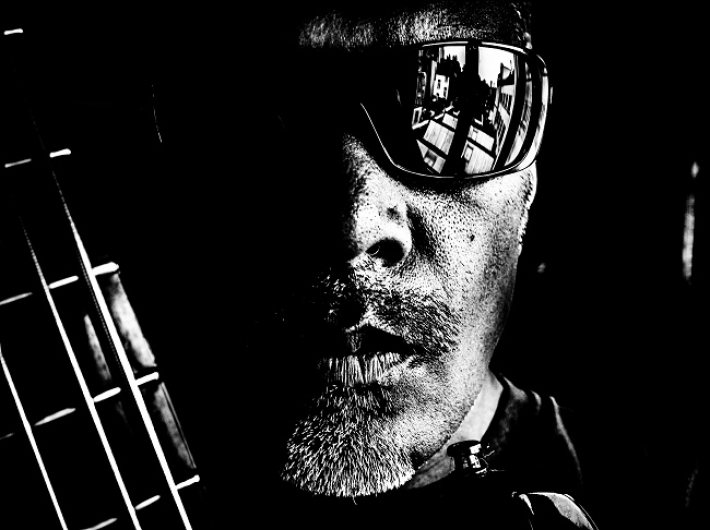 Photo Courtesy: Dr. Das
Photo Courtesy: Dr. Das
Dr.Das is not just the founder member/bass player of one of the most dangerously hardcore and politically charged dub mega band called Asian Dub Foundation (UK), he is an institution in himself. Advocating the power of ‘dub’ since the early 90s, Dr. Das has pioneered, fostered, and re-created, some of the greatest sonic experiences with his ‘dubwize’ approach to sound that absorbs multiple genres like rapcore, punk, qawwali, dancehall, jungle, DnB, and rock spiced with East Asian motifs. The vitriolic socio-political themes of ADF further propel our consciousness into revolutionary ‘jump up’ mind-body experiences.
Few artists in recent times have embodied the ‘dub’ concept as faithfully as Dr. Das and his musical career that spans close to two decades stands as a testimony. Besides playing for ADF since its inception in the mid 90s and having rejoined them in 2012, Dr. Das has been spreading his dub and bass vibrations with his solo project called Dubnoiz Sound System. In the early-noughties, his debut album, Emergency Basslines, was released; and ever since then, Dr. Das has been propagating the ‘dubnoiz’ philosophy, playing live bass with his team comprising of Bantu (mixing/visuals), and Ramzac (dub FX/percussions).
Tracing the history of Dr. Das and his anarchic dub sound, the idea of technology as a tradition and the articulation of a new cultural identity for the Asian diaspora has been a resounding theme. Around the cusp of the new millennium, with technology fully empowering people to musically explore and create new vistas, Dr. Das takes his cue, and initiates summer workshops in London’s Farringdon Community Music Centre to teach young Asian people the basics of music technology. This is how and where ADF was formed.
Using dub as its foundation, ADF was one of the pioneers in creating this new hybridization of a musical and personal identity among the Asian youth and the social underclass not just in the UK, but the world over. And the foundation of this uniquely Asian dub sound, with its blatancy and psycho-active harshness, was laid by ADF and its founder member, Dr.Das. The raging bull sound of ADF with its reality check on the political and socio-economic scene of our times has been an inspiration for conscious listeners and lovers of music globally. Rolling Stones magazine aptly called ADF, “musical colonization in reverse”. While Fun-Da-Mental and Talvin Singh ushered in the Asian underground scene back in the day, it was bands like ADF that further solidified the genre-defying whomp of trans-national sounds and neo-cultural identity.
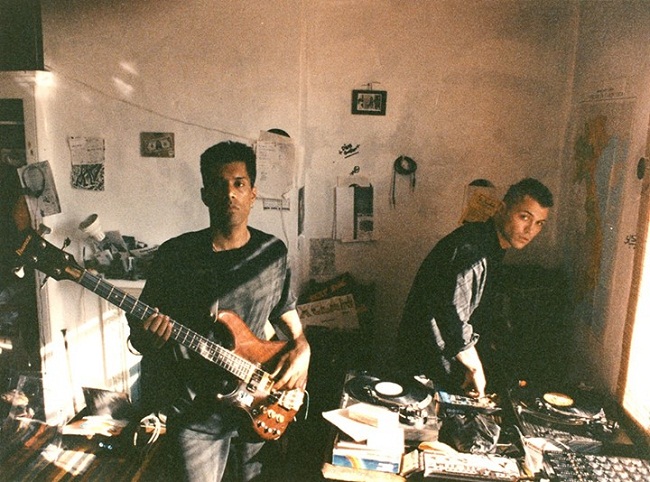
Photo by VJ Coco
Reinforcing his love for Indian and middle-eastern music, as well as Jamaican dub-reggae sounds, Dr. Das has created a giant sonic cauldron whose strange brew consists of conscious rappers clashing with MIDI warriors, urban ethno mating with tribal techno, qawwali-punk coupled with ghetto funk, and King Tubby style reverbs blending in with Indian aromatic herbs. The feisty firebrand style of this highly inflammable punk-agitation rock sound drenched in dub electronic philosophy has been successfully honed by ADF as well as Dr. Das over many years, and in many continents. Currently, he is back on the road with ADF to promote their new album, The Signal to the Noise. With over a dozen albums, ADF’s weltanschauung has been a force to reckon with since their formation. And the insurgent immediacy of the band’s sound has become more pronounced with the re-introduction of Dr. Das in the band in 2012.
Besides recording and touring with the new ADF material, early 2014 saw the release of Dr. Das’s second solo album, Preparing for War. Yes, he is back in full form with his power packed, body punching, dub warrior sounds. According to him, this album continues the ‘dubnoiz’ theme of the first album Emergency Basslines. There are enormous bass melodies set against a shifting, tense environment of noise and percussion. Seething with intent, the bassline, rhythms, and ‘noiz’, are metaphors for human action and emotion; be it anger, militancy or optimism. The instrumental aspect makes people visualize the sound for themselves, and intuit the politically motivated frequencies in them.
The dub ideology runs contextually far deeper than the immediate sonic boom of Dr. Das ‘s compositions. It carries the roaring voices of the people trying to bring down Babylon. The themes are anti-racist, anti-imperialist, and highlight the ills of crony capitalism and corrupt politics rampant worldwide. It reflects the need to save indigenous peoples and culture from the throes of global capitalism, from the mainstream media tactics of indoctrination, and religious bigotry. Tracks like ‘Petroleum Junkies’ and ‘Ramallah Vibes’ tell a story instrumentally, imploring us to delve deeper, and constantly suspect the neo-liberal policies that perpetuate inequality, poverty, strife, and eventually, war.
Lest we forget, Dr. Das, along with ADF, has been raising the issue of racism and human rights since the very beginning. Besides collaborating with bands like Primal Scream, opening for Beastie Boys, etc.; ADF and Dr. Das have kept the issues of social inequality and youth empowerment at the forefront by conducting workshops and creating ADFed.
But, Dr. Das assures us that this music is designed to make people dance, to make love, and to riot. While some real wars are hinted at in some song titles; the real conflict, Dr Das says, is the one we play out in our own minds – whether we should engage in trying to change things, or leave it up to other people. As for the love of bass guitar, in the fabulous ‘Innerview’ by Anil Prasad some time ago, Dr. Das stated that there are several criteria the bass line has to meet for him: Does it break your heart? Will it make your body move? Is it militant? And can you make love to it? In a way, it’s a search for the one bass line that exists at the center of the universe.
For Dr. Das, dub is a vehicle for making experimental music that was accessible and danceable, rather than just intellectual. Dr Das refers to his bass style as ‘indodub.’ His exposure to ragas at an early age listening to Indian classical records with his father left him with a deep love of cyclical melodies, and imbued him with a strong ‘modal’ sensibility. He discovered the same cyclical principle at play 20 years later in dub music, except several octaves lower. In his solo ‘BJ gigs’ (just live bass and electronic rhythms), he absorbs the dub tradition fittingly. With the bass and percussion patterns behaving like a musical DNA, other sundry instruments (including vocals) keep rising and falling like multiple orgasms filtered through echoes, reverb, and distortion.
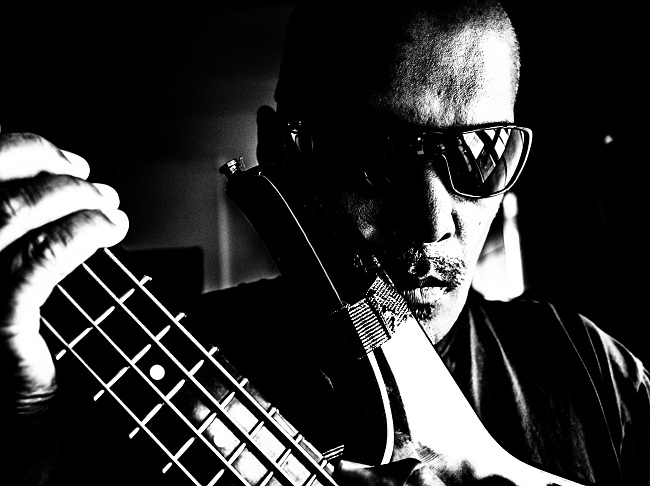
In The Story of Jamaican Dub Reggae and Its Legacy by John Bush, it has been noted that shifting abruptly between higher end sounds, such as the vocals, and the lower end sounds of the bass, is a frequently used technique in basic dub mixing. This sudden shift in the type of sound can have a very powerful effect on the listener, as the parts of the body and mind that are stimulated by these sounds are quite different. The emphasis lies in the emotions that it conjures in the listener and the body movements induced by it. Right said John.
When you listen to Preparing for War as well as the new remixes by Dr.Das (like Blood Earth Project in Orissa, and Bant Singh Project in Punjab, both made in India originally by Delhi Sultanate and Chris), you will get a drift of this cerebral stimulation. It is the abstracted version of dub that lays emphasis on the use of noise and distortion, as opposed to the more ‘traditional’ elements of echo and reverb. And the organic nature of the electric bass nicely counter balances the inorganic electronics.
Regarding the sound of Dr. Das as well as ADF, never call it “ethnic, exotic, or eclectic.” An interviewer from Japan Times was told categorically by Dr. Das that they usually kill journalists who use the word ‘eclectic’. “I have some dead ones in the shed at the bottom of the garden”, he added. So let me just call it ‘Asian hardcore dubnoiz’, to remain safe from being hacked down by Dr. Das. And analogously speaking, the underground resistance and aggressive activism can be summed up by this old Jamaican proverb: “Pepper burn hot, but it’s good for curry,” (Harsh advice may be good for you).
Dubnoiz Sound System, featuring Dr.Das (bass/electronica) and Bantu (dub mixing/visuals), will give its debut India performance in New Delhi on the September 18 for ‘Fully Underground’ at Turquoise Cottage, Saket.
Stream 'Riot Scale' by Dr. Das below:
Previous Article Shubhangi Joshi: Initial Baby Stepping Shubhangi Joshi: Initial Baby Stepping
|
Next Article PINKNOISE Release The Dance Of The Diaspora, LP PINKNOISE Release The Dance Of The Diaspora, LP
|
A review of Delhi-based, experimental indie rock/eleventh century sounds influenced three piece outfit, Begum's debut album, Bagh.
A review of Nice Weather For Ducks's debut EP, Color The Era.
Vasuda Sharma’s debut record, Attuned Spirits, is an amalgamation of western and traditional Indian classical sounds, with an underlying aesthetic of exploration and experimentation that lends it a clear direction. Collaborations feature heavily on the album, yet the continuity of her vision springs forth at every juncture. Vishad Sharma speaks to her about writing for the album, setting up a live band, and her journey of self-discovery and new beginnings.
Baiju Dharmajan, the guitar visionary who was an intrinsic part of Motherjane's sound from 1999 to 2010 with his infusion of Carnatic and western sounds, has announced the 10 Years of Mindstreet Tour to celebrate the release of Motherjane's 'Mindstreet' on RSJ's Great Indian Rock CD in 2003, as well as Motherjane: Baiju Dharmajan Diaries, a free ebook about the time he spent with the band.
Inch by inch, Frame/Frame has been making waves within the indie community with his bouncy live act and the release of his new EP, Swimmers, accompanied by a music video for 'Pastels'. Here, he talks to Shomi Gupta about the album, the video, playing live "bangers", and recording the flush in his toilet, of course.
RSJ STAFF Passenger Revelator is an eclectic band formed by guitar player/producer Donn Bhat, who has previously been part of seminal acts such as
AMBIKA MUTTOO As far as interviews go, this one couldn’t get any better. Sascha Ring, better known as Apparat, Gaurav Raina and Tapan Raj of the Midival
There’s this really cool thing about us Indians. We’re fools. You can argue about it all you…
Keshav Dhar of Skyharbor writes about Indian bands and the internet in this special column.



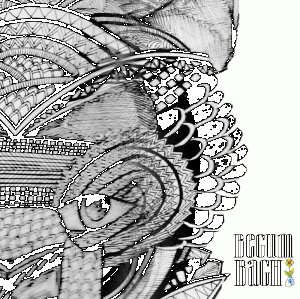
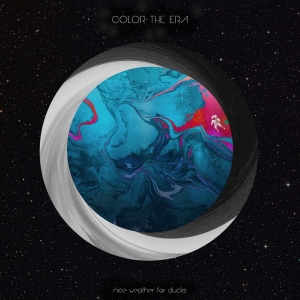
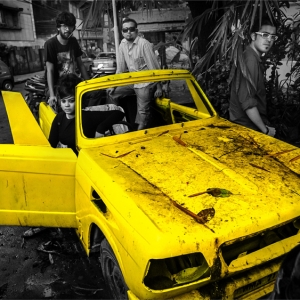
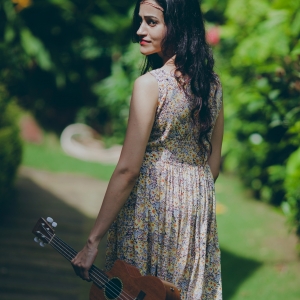


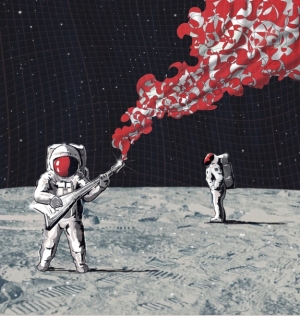
_sq.jpg)
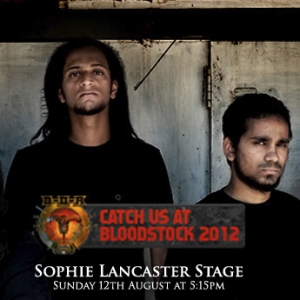
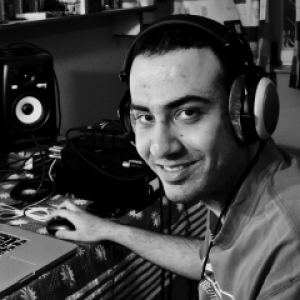
Leave a comment